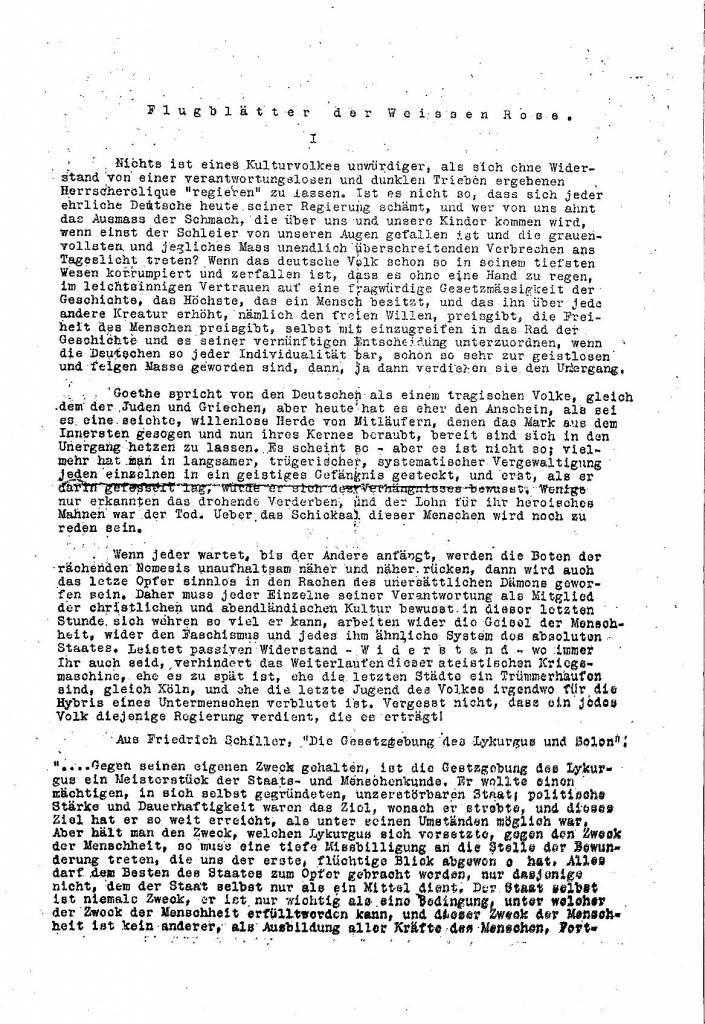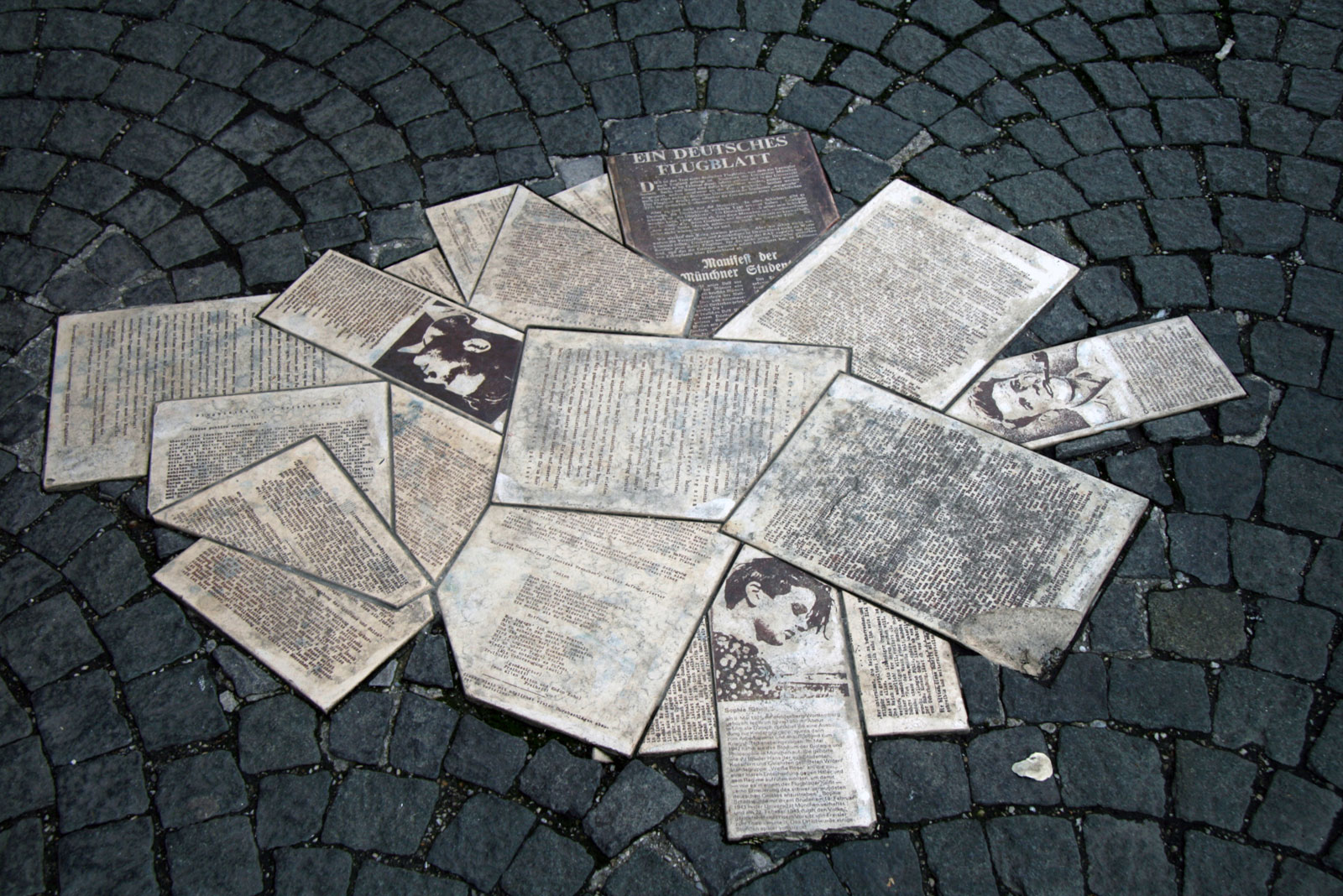The definition of courage is, “the ability to do something that frightens one.” The White Rose group communicated their courage by rebelling against the Nazis and proving to Germany that some people were not influenced by Hitler’s propaganda. White Rose pamphlets gave German citizens hope that there were people brave enough to fight for change. Through the group’s execution, the Nazis also communicated that if people were to speak out against the Nazi Regime, they would be imprisoned or even killed.
"I think the reason why a lot of Germans feel personally connected to it [the White Rose story] is because it shows that not everbody was fully behind the Nazi regime and that there were these, way too few, but incredibly brave people that tried to do someting about it. In addition to that, really the power and the importance of special young people thinking about what kind of society they do want to live in and then working for that."
~ From interview with Tanja Spitzer, WWll Museum

Flashback 1942; First White Rose pamphlet.

Britannica 1990; White Rose Memorial at the University of Munich.
"I had never heard of any of them. But as I read those names an inexpressible hope leaped up in me... and I was not the only one who felt this way... This hope- which made it possible for us to go on living- was not just the hope of survival... It helped so many that still had to die: even they could die with hope... It was like a secret light that expanded over the land: it was joy.
~ Ilse Aichinger, a poet living in Vienna
Today in Munich, Germany students learn about the group, and their actions in school. The University of Munich keeps the White Rose story alive with a monument of metal pamphlets that represent the leaflets Sophie threw over the balcony. The White Rose taught people, not only in Germany but all over the world, to fight for what you believe in. They died trying to communicate the truth, knowing the risk could be fatal.

Inquiries Journal; Stamp of Sophie and Hans.